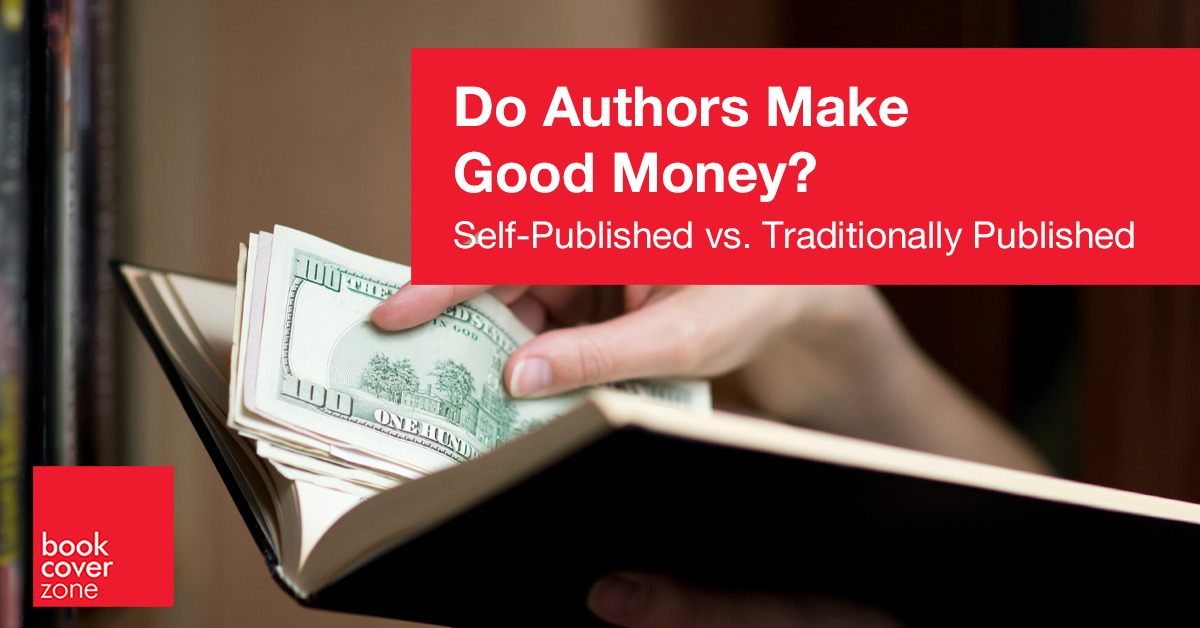Most authors write because they are passionate about storytelling and not for financial gain. While there’s always a chance of hitting it big, like with any form of entertainment, it’s a slim one—and often not the best motivation for taking up the pen.

Do Authors Make Good Money?
The question of whether authors make good money isn’t as straightforward as one might think. Believe it or not, the literary world isn’t just filled with J.K. Rowlings and Stephen Kings, and for most authors, the financial reality is far from the multi-million dollar deals we often hear about in the news.
The Financial Spectrum of Authorship
First, it’s important to distinguish between different kinds of authors. The spectrum ranges from self-published authors, who might pay out of pocket to get their work into the world, to traditionally published authors, who work with established publishing houses.
At the pinnacle are the best-selling authors. These writers, like Stephen King, J.K. Rowling, and George R.R. Martin, are the outliers. J.K. Rowling, for instance, has amassed an estimated fortune of over $1 billion, largely due to the global success of her Harry Potter series. However, she represents a mere fraction of the author population.
For a more typical scenario, let’s consider the median earnings. A report from the Authors’ Licensing and Collecting Society (ALCS) noted that in 2021, the median income of a professional author was approximately $20,000 per year. This is a far cry from Rowling’s billions and is even below the median personal income level in many countries.
The Journey of Self-Published Authors
In the self-publishing realm, the story varies even more. Platforms like Amazon Kindle Direct Publishing have democratized the process of book publishing, allowing anyone to publish a book. However, the sheer volume of books available means that visibility and sales can be exceptionally challenging to attain.
The earnings for self-published authors can be unpredictably sporadic. Some, like Hugh Howey, who self-published his “Wool” series, strike it rich. Howey has sold millions of books and made it to the New York Times bestseller list, a rarity in the self-publishing world. Yet, for every Hugh Howey, there are thousands of others earning less than $1,000 a year from their books.
Traditional Publishing Paths
For traditionally published authors, advances and royalties are the primary sources of income. Advances are upfront payments given to an author upon signing a deal with a publisher, against future royalties. These can range from a few thousand dollars for debut authors to millions for established, best-selling authors.
Royalties, which are a percentage of the book’s sales, typically range from 5-15% for printed books and up to 25% for ebooks. However, earning out an advance and making significant royalty income is not a guarantee, as it hinges on the book’s market performance.
Real-life Example
Consider the case of a midlist author like Kameron Hurley, a speculative fiction writer. In a revealing blog post, she shared her numbers, showing she made about $31,000 over nine months from three books. Hurley’s situation underscores that even well-reviewed books by respected authors might not lead to ‘quit your day job’ levels of income.
In Conclusion
The truth about author earnings is that while the potential for significant money exists, it is not the norm. Most authors write because they are passionate about storytelling and not for financial gain. While there’s always a chance of hitting it big, like with any form of entertainment, it’s a slim one—and often not the best motivation for taking up the pen. For most authors, the financial rewards are modest at best, and it’s important for aspiring writers to set realistic expectations and perhaps not leave their day jobs just yet.






